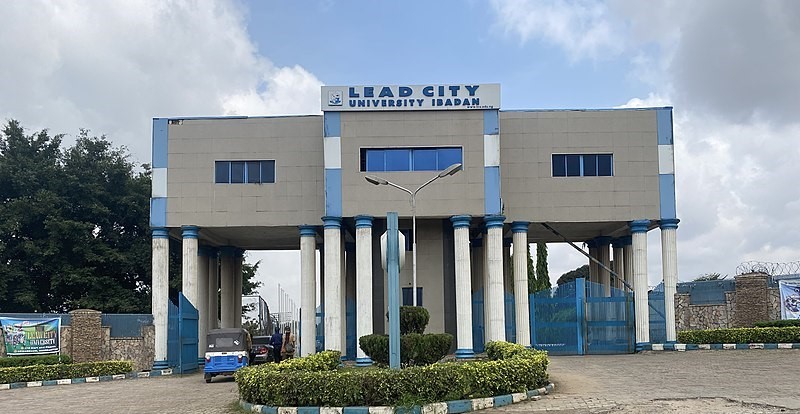
Prof. Grace Oloukoi, Dean of the Faculty of Environmental Design and Management at Lead City University, Ibadan, alongside 15 other African institutions, has secured a $5 million Canadian Dollar grant for the Pioneering Climate Adaptation Resilience (CLARE) project.
Prof. Oloukoi, a renowned Professor of Urban Planning and Environmental Management, announced this during a press conference at the university’s International Conference Centre.
Lead City University will receive CAD 325,876 as part of this research collaboration, successfully secured by Prof. Oloukoi. This is a sub-contract of the project titled “A Pan-African and Trans-disciplinary Lens on the Margins: Tackling the Risks of Extreme Events (PALM-TREEs).”
Explaining the details of this significant achievement, Prof. Oloukoi stated, “PALM-TREEs, a project worth CAD 5,370,300, is part of the Climate Adaptation and Resilience (CLARE) programme, a UK-Canada framework research initiative funded primarily by the UK’s Foreign, Commonwealth and Development Office (UK-FCDO) and the International Development Research Centre (IDRC).”
The PALM-TREEs project is being implemented across six countries – Nigeria, South Africa, Ghana, Cameroon, Kenya, and DR Congo – and involves 16 institutions from Africa and the United Kingdom. The University of Cape Town leads the consortium under the guidance of Prof. Abiodun Babatunde.
Other notable partners include the International Water Management Institute (IWMI), University of Lagos, University of Oxford, UK Met Office, University of Nairobi, Kwame Nkrumah University of Science and Technology, the Nigerian Institute for Social and Economic Research (NISER), and University of Yaoundé.
“The project focuses on lived experiences and indigenous knowledge to understand climate risk dimensions in local communities and to ensure inclusive adaptation policies in Africa,” Prof. Oloukoi noted.
In Nigeria, Prof. Oloukoi collaborates with Prof. Mayowa Fasona from the University of Lagos and Prof. Andrew Onwuemele from NISER.
The project targets Lagos for city-scale studies on flooding and heat waves and the Middle Belt for regional-scale studies on agricultural drought and flooding.
Prof. Oloukoi emphasized, “The project aims to explore the impacts of these extreme events on the livelihoods and well-being of vulnerable populations, including the homeless, aged, children, women, immigrants, and the physically challenged.”
The project also provides opportunities for Early Career Scientists (ECS) through doctoral and postdoctoral research. Prof. Oloukoi serves as the Focal Lead for Gender and Social Inclusion for the PALM-TREEs project across Africa.
The interconnected work packages for the project include social impacts of climate extremes, physical impacts of extreme events, climate-resilient solutions, and capacity strengthening.
Specific outputs aim to reduce barriers to sustainable knowledge networks, foster equitable relationships between stakeholders, develop transferable methodologies for extreme events, and promote nature-based adaptation strategies.
“The project has commenced and will run for 42 months, concluding in January 2027. Initial stakeholder engagement meetings were held in Lagos and Ilorin, involving media, communities, government agencies, non-state actors, knowledge brokers, and scientists to brainstorm and harvest ideas for the project’s success in Nigeria,” Prof. Oloukoi added.
Lead City University is providing institutional support for the project, which is expected to enhance the global visibility of its faculty members and foster significant scholarly contributions.
Subscribe to National Updated for more News.
